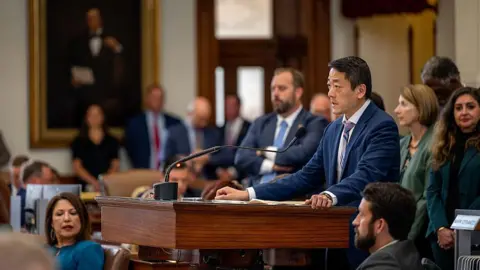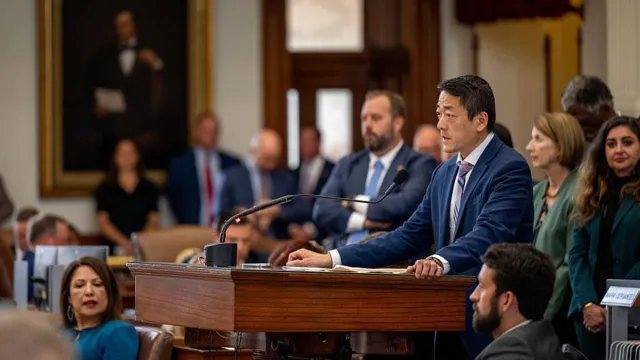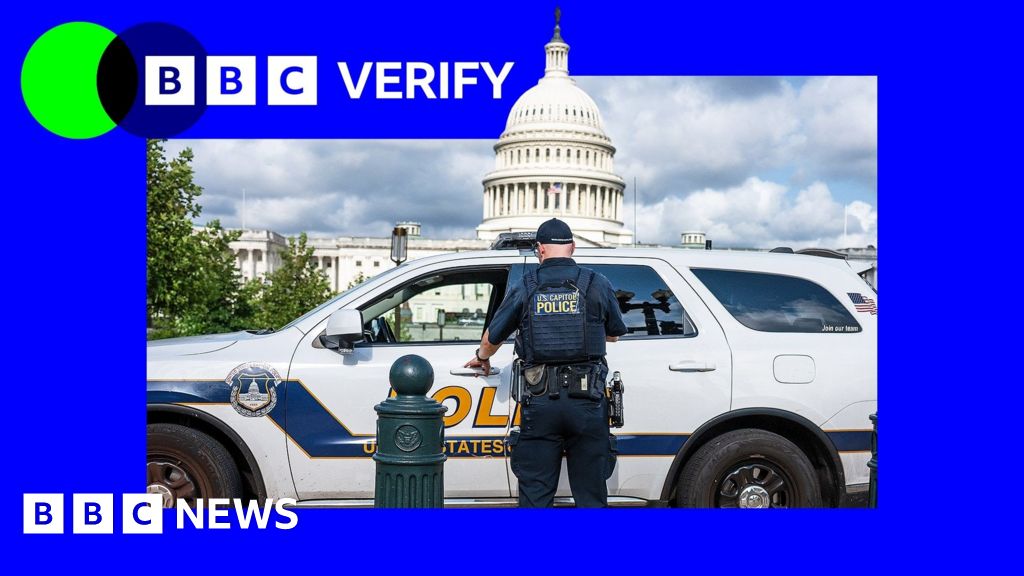BBC News
Texas legislators have approved new congressional maps designed to give Republicans an edge in next year’s elections for the US House of Representatives.
Republicans in the Texas House of Representatives passed the new voting lines in an 88-52 vote, creating five new Republican-leaning seats.
It followed a two-week stand-off in which Democrats fled the state to stall the vote and rally supporters against the redistricting plans.
The maps will now go to the state Senate, where they are expected to be swiftly approved and then signed off by the Texas governor.
The move by Texas has sparked redistricting battles across the US in states run by both major parties.
President Donald Trump, who backed redrawing the maps to safeguard a Republican majority in the US House, reacted with the words: “Big WIN for Great State of Texas!!!”.
Republicans hold a slim majority in the lower chamber of Congress, which Democrats aim to win back in the 2026 midterm elections.
Wednesday’s vote in Texas followed a dramatic showdown as Democrats fled across state lines to deny Republicans the quorum necessary in the state legislative body to take a vote.
Texas Governor Greg Abbott, a Republican, ordered the absent Democrats’ arrest, and some of them said law enforcement had monitored their homes while they were gone.
The lawmakers returned this week, saying they had achieved their objective of drawing national attention to the matter.
In an effort to ensure Democrats would not attempt to halt the vote again, Texas House Speaker Dustin Burrows ordered the statehouse chamber doors to be locked on Monday.
He also said Democrats would be “released into the custody” of a designated police officer to ensure they returned to the statehouse on Wednesday for the redistricting vote.
One of the lawmakers, Nicole Collier, decided to sleep in the chamber rather than be escorted by an officer. Her protest spread among Democrats, with others joining her and ripping up their police escort agreements.
In the time since Texas started planning these new voting maps, other states controlled by both political parties – including Florida, New York, Ohio and Missouri – have been weighing similar changes.
California lawmakers are currently debating new maps that would give new advantages to Democrats in five districts, which would cancel out changes made in Texas.
A key provision in California says the maps would only go into effect if Texas or other states went ahead with changes favouring Republicans.
After the vote on Wednesday, California Governor Gavin Newsom wrote on X: “It’s on, Texas.”
The new maps in Texas sparked uproar over gerrymandering – the redrawing of electoral boundaries to favour a political party – which is practised by both main parties and is legal unless ruled to be racially motivated.
Like other states, Texas typically redraws congressional districts once a decade when new population data is released by the US Census.
Texas Democrats claimed that redrawing the maps before the next population count in 2030 was being done along racial lines – an argument that has been rejected by Republicans.
Voting maps that were approved in 2021 after the last population count are still being litigated over claims of racial discrimination.
 Getty Images
Getty ImagesDuring one of the many heated exchanges during debate in the Texas statehouse, Republican legislator Todd Hunter, who introduced the redistricting bill, was applauded as he scolded Democrats.
“Don’t come into this body and say we didn’t include you,” he said. “You left us for 18 days, and that’s wrong.”
Democrats in the chamber questioned the legality of the maps and accused Republicans of trying to “steal” an election.
“Let’s talk about cowardice and cheats,” Democratic legislator Ann Johnson said.
“The root of all of this is around racism and power,” she added. “A pure power grab.”
Democrats and civil rights groups have said the new maps will dilute voting power from minorities, which would violate federal law, and have threatened to sue.




